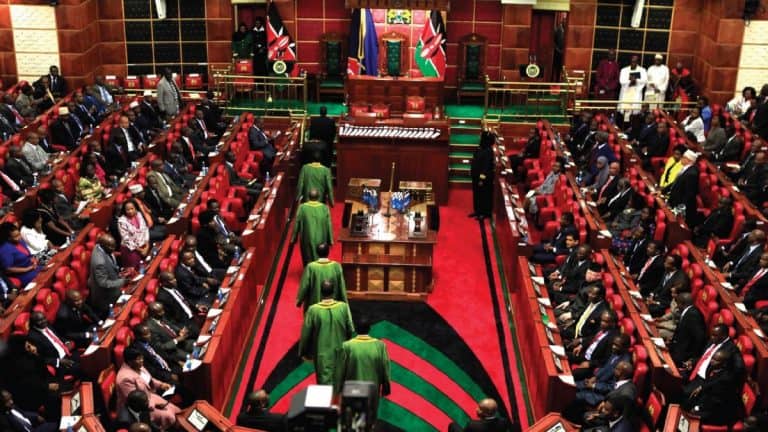Comprehensive Guide to the Companies and Foreign Companies Regulations 2024 in Kenya
Overview of the Companies (Foreign Companies) Regulations, 2024
The Companies (Foreign Companies) Regulations, 2024, aim to streamline the operations and compliance framework of foreign companies operating within the Kenyan jurisdiction. These regulations, drafted under the Companies Act, 2015 (as amended), introduce clear legal and administrative procedures to ensure transparency, accountability, and ease of doing business for foreign entities.
Registration Requirements for Foreign Companies in Kenya
Mandatory Registration Thresholds
Under the new framework, a foreign company is required to register with the Registrar of Companies before establishing a place of business in Kenya. The following criteria mandate registration:
- Maintaining a physical or virtual office within Kenya.
- Appointing local representatives or agents.
- Engaging in business negotiations or contracts within the Kenyan market.
Failure to comply attracts penalties as per Section 974 of the Companies Act.
Documentation Required
To complete registration, the foreign company must submit:
- A certified copy of its charter, statute, or memorandum and articles of association.
- A list of directors and shareholders.
- Details of the registered principal office in Kenya.
- Names and addresses of Kenyan-based service agents.
- A statement of compliance (Form FC1).
These submissions must be notarized and, if not in English, must be accompanied by a certified translation.
Annual Compliance and Reporting Obligations
Foreign companies must meet ongoing reporting requirements. These include:
- Annual Returns (Form FC5): Submitted within 30 days of the anniversary of registration.
- Changes in Particulars (Form FC6): Updates to directors, office address, or shareholding must be filed within 21 days of the change.
- Financial Statements: Certified audited accounts must be submitted annually, including a consolidated balance sheet.
Non-compliance with annual filing requirements may lead to deregistration or administrative penalties.
Legal Capacity and Limitations of Foreign Companies
Legal Recognition
Registered foreign companies have the same legal standing as domestic companies. They may:
- Own property.
- Enter into contracts.
- Sue and be sued in Kenyan courts.
Business Restrictions
However, foreign companies are prohibited from engaging in activities contrary to the public interest, national security, or local ownership laws such as those governing natural resources, telecommunications, or financial institutions.
Appointment of a Local Representative
Each foreign company must appoint at least one local representative, resident in Kenya, responsible for:
- Receiving official correspondence.
- Ensuring compliance with Kenyan laws.
- Representing the company in legal proceedings.
The appointment must be formally documented through Form FC4 and registered with the Registrar within 21 days.
Deregistration and Exit Procedures
Voluntary Deregistration
A foreign company may apply for voluntary deregistration by:
- Submitting a notice of cessation of business (Form FC8).
- Settling all outstanding statutory obligations.
- Returning its registration certificate.
Involuntary Deregistration
The Registrar may strike off a company that:
- Fails to file annual returns for two consecutive years.
- Is found guilty of fraudulent or illegal activities.
- Is dormant or non-compliant with the Companies Act provisions.
Penalties and Enforcement Mechanisms
| Offense | Penalty |
|---|---|
| Operating without registration | KES 500,000 plus KES 50,000 for each day of default |
| Failure to file annual returns | KES 200,000 per offense |
| Failure to appoint a local representative | KES 250,000 |
| False or misleading statements | Up to KES 1,000,000 or imprisonment |
Enforcement will be administered by the Registrar and supplemented by the Office of the Attorney General.
Transitional Provisions for Existing Foreign Companies
Existing foreign companies registered before the commencement of the 2024 Regulations are given a grace period of six months to comply with the new provisions. They must re-submit updated documentation and confirm compliance using Form FC9.
Digital Transformation and Online Filings
The 2024 Regulations leverage digital tools to streamline registration and compliance. The Business Registration Service (BRS) portal allows:
- Online registration and submission of forms.
- Payment of statutory fees.
- Tracking of compliance history.
This aligns with Kenya’s Digital Economy Blueprint and the National E-Government Strategy.
Suggested Diagram: Registration Process Flow
flowchart TD
A[Start: Foreign Company seeks entry into Kenya] --> B{Has physical presence?}
B -- Yes --> C[Prepare required documents]
B -- No --> D[No registration required]
C --> E[Submit via BRS portal (Form FC1)]
E --> F{All documents in order?}
F -- Yes --> G[Pay registration fee]
F -- No --> H[Receive notice to rectify]
G --> I[Receive Certificate of Registration]
I --> J[Appoint local representative (Form FC4)]
J --> K[Begin business operations]
Strategic Implications for Foreign Investors
Foreign investors are advised to undertake a regulatory risk assessment and align internal policies with the new legal obligations. Key recommendations include:
- Conducting legal due diligence prior to entry.
- Outsourcing compliance to licensed company secretaries.
- Regular training for local representatives on statutory responsibilities.
Conclusion: Enhancing Transparency and Compliance
The Companies (Foreign Companies) Regulations, 2024, mark a significant step toward modernizing corporate governance and enhancing Kenya’s investment climate. By reinforcing compliance, encouraging digital registration, and setting clear operational boundaries, these regulations offer a level playing field for both domestic and international entities.
Ready to expand? Get expert guidance to ensure a smooth market entry!







